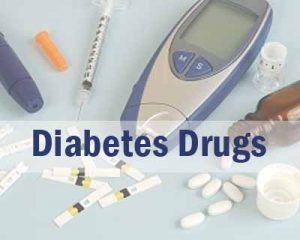- Home
- Editorial
- News
- Practice Guidelines
- Anesthesiology Guidelines
- Cancer Guidelines
- Cardiac Sciences Guidelines
- Critical Care Guidelines
- Dentistry Guidelines
- Dermatology Guidelines
- Diabetes and Endo Guidelines
- Diagnostics Guidelines
- ENT Guidelines
- Featured Practice Guidelines
- Gastroenterology Guidelines
- Geriatrics Guidelines
- Medicine Guidelines
- Nephrology Guidelines
- Neurosciences Guidelines
- Obs and Gynae Guidelines
- Ophthalmology Guidelines
- Orthopaedics Guidelines
- Paediatrics Guidelines
- Psychiatry Guidelines
- Pulmonology Guidelines
- Radiology Guidelines
- Surgery Guidelines
- Urology Guidelines
Liraglutide linked with increased risk of gallbladder or biliary tract related events, finds study

Type 2 diabetes drug Liraglutide linked with increased risk of gallbladder or biliary tract related events, revealed a study published in the Journal Diabetes Care.
Liraglutide is a long-acting, fatty acylated glucagon-like peptide-1 (GLP-1) analog administered subcutaneously, with antihyperglycemic activity. It works by increasing insulin release from the pancreas and decreases excessive glucagon release. It was approved by the U.S Food and Drug Administration (FDA) in 2010 as an adjunct therapy to diet and exercise for the management of type 2 diabetes. In a recent randomized clinical trial, high-dose liraglutide (a GLP-1 analog) for weight loss was associated with an increase in gallbladder-related events (eg, cholelithiasis, cholecystitis, and cholecystectomies).
To explore gallbladder- and biliary tract–related events reported for the liraglutide and placebo groups in the Liraglutide Effect and Action in Diabetes: Evaluation of Cardiovascular Outcome Results (LEADER) trial, the authors of this study conducted a randomized control trial including 9,340 participants with type 2 diabetes at high risk for CV events. The participants were randomized 1:1 to receive either liraglutide (≤1.8 mg daily; total no of participants = 4,668) or placebo (total no. of participants = 4,672), with both groups also receiving standard care (treatment period: 3.5–5 years). Acute gallstone disease was a medical event of special interest. This post hoc analysis categorized captured events of the acute gallbladder or biliary disease into four groups: uncomplicated gallbladder stones, complicated gallbladder stones, cholecystitis, and biliary obstruction. Time to the first event by treatment group was analyzed using Cox regression.
Key Findings
- There was an increased risk of the acute gallbladder or biliary disease with liraglutide ( 141 of 4,668 ) versus placebo (88 of 4,672 ).
- Similar trends were observed for each of the four categories of the gallbladder- or biliary tract–related events.
- Cholecystectomy was performed more frequently in liraglutide-treated patients (HR 1.56; 95% CI 1.10, 2.20; P = 0.013) but for similar proportions of the patients who experienced gallbladder- or biliary tract–related events (57% with liraglutide vs. 59% with placebo).
Based on their findings, the authors concluded that "Although LEADER was not specifically designed to assess acute gallbladder or biliary disease, the trial showed an increased risk of gallbladder- or biliary tract–related events with liraglutide versus placebo, which appeared to be consistent across four categories of these events. Further studies should investigate the relevant mechanisms."
For reference, follow the link
https://doi.org/10.2337/dc19-0415

Disclaimer: This site is primarily intended for healthcare professionals. Any content/information on this website does not replace the advice of medical and/or health professionals and should not be construed as medical/diagnostic advice/endorsement or prescription. Use of this site is subject to our terms of use, privacy policy, advertisement policy. © 2020 Minerva Medical Treatment Pvt Ltd